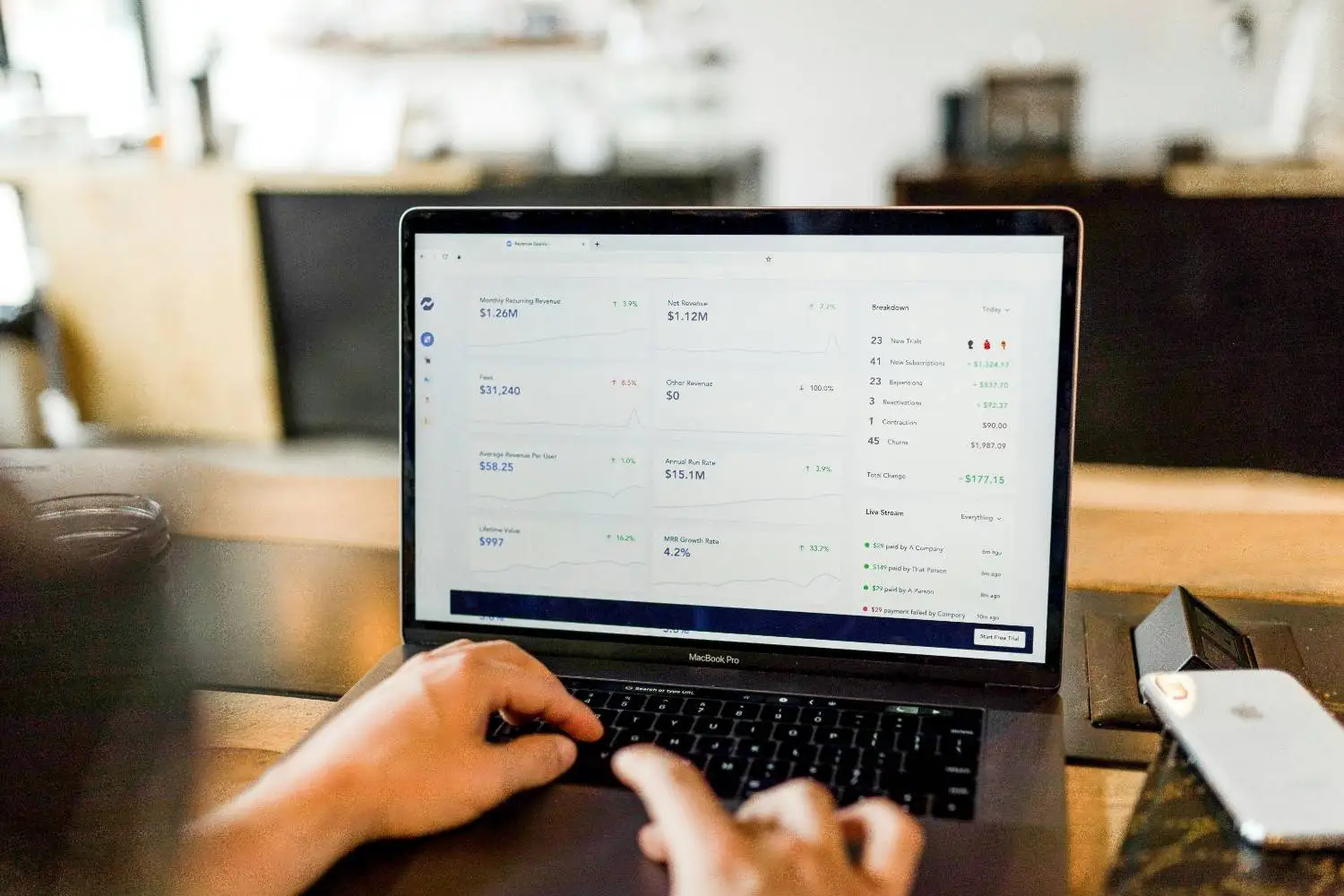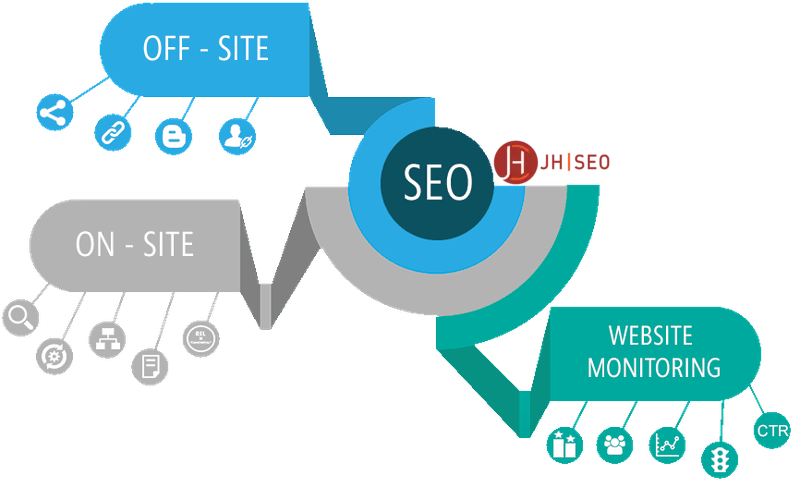Google Local SEO is the practice of optimizing your online presence to attract more business from relevant local searches. For businesses, local SEO is essential to enhance visibility in their specific geographic area, driving more foot traffic and increasing sales. Here are the fundamentals of Google Local SEO, its importance for local businesses, and the key strategies and best practices to effectively implement it. By understanding and applying these principles, businesses can significantly improve their local search rankings and connect more effectively with their target audience.
Understanding Google Local SEO
Core Concepts of Local SEO
Google Local SEO involves optimizing a business’s online presence to attract more customers from relevant local searches. This includes everything from ensuring the business appears on Google Maps to optimizing local listings and engaging with the community online. Key components include local keywords, Google My Business (GMB) profiles, and local backlinks.
Differences Between Local SEO and Traditional SEO
While traditional SEO focuses on improving a website’s visibility on a global or national level, Local SEO narrows down to enhancing visibility within a specific geographic area. Traditional SEO emphasizes keywords and content relevant to broader audiences, whereas Local SEO targets location-based searches and includes local-specific strategies like GMB optimization and local citations.
Benefits of Implementing Local SEO
Implementing Local SEO offers numerous benefits, such as increased local visibility, higher search rankings for local queries, and more foot traffic to physical locations. It also helps build trust within the community by showcasing positive reviews and local engagements, ultimately leading to increased sales and customer loyalty.
Key Components of Google Local SEO
Google My Business (GMB)
Setting Up and Optimizing GMB Profile
Creating a GMB profile is the first step in Local SEO. Ensure your local business information is accurate and up-to-date, including the business name, address, phone number (NAP), website, and hours of operation. Use relevant categories and add high-quality images to make your profile more appealing.
Managing Customer Reviews
Customer reviews significantly impact local rankings and consumer trust. Encourage satisfied customers to leave positive reviews and respond promptly to all reviews, addressing any negative feedback constructively. This engagement shows potential customers that you value their opinions and are committed to excellent service.
Utilizing GMB Posts and Updates
Regularly update your GMB profile with posts about promotions, events, and new products or local services. These updates keep your audience informed and engaged, and they can also help improve your local search visibility.
Local Citations and Directories
Building Consistent NAP (Name, Address, Phone Number)
Consistency in your business’s NAP across all online platforms is crucial for Local SEO. Ensure your information is accurate and uniform on your website, social media profiles, local directories, and any other online listings to build trust with search engines and potential customers.
Leveraging Local Business Directories
List your local business in reputable local directories and industry-specific sites. This not only boosts your local visibility but also helps build backlinks, which are essential for improving your search rankings.
On-Page SEO for Local Businesses
Optimizing Title Tags and Meta Descriptions
Include local keywords in your title tags and meta descriptions to signal to search engines that your content is relevant to local searches. Ensure these elements are compelling and informative to attract clicks from local search results.
Using Local Keywords
Incorporate local keywords naturally throughout your website content, including product descriptions, blog posts, and service pages. This helps search engines understand your business’s relevance to local searches.
Creating Location-Based Content
Develop content that speaks to your local audience’s interests and needs. This can include blog posts about local events, guides to your area, and case studies featuring local customers. Location-based content enhances your relevance and authority in local searches.
Off-Page SEO Strategies
Building Local Backlinks
Acquire backlinks from local businesses, organizations, and news sites to strengthen your local SEO. Collaborate with local bloggers or participate in community events to earn mentions and links from reputable local sources.
Engaging with the Community on Social Media
Actively participate in local social media groups and engage with your community online. Share local news, respond to comments, and promote local events to build relationships and increase your local visibility.
Collaborating with Local Influencers
Partner with local influencers to reach a broader audience within your community. Influencers can help promote your business to their followers, driving traffic and increasing your local search rankings.
Advanced Strategies for Google Local SEO
Leveraging Google Maps and Local Pack
Understanding Google Maps Ranking Factors
To rank well on Google Maps, several factors come into play, including the completeness of your Google My Business (GMB) profile, the number and quality of reviews, the consistency of your NAP (Name, Address, Phone Number) across the web, and your proximity to the searcher. Additionally, your business’s relevance and prominence, influenced by backlinks, citations, and social signals, are crucial.
Strategies to Rank in the Local Pack
The Local Pack is the set of three highlighted business listings that appear below the map in Google search results. To rank in the Local Pack, ensure your GMB profile is fully optimized with accurate information, high-quality images, and regular updates. Encourage satisfied customers to leave positive reviews and respond promptly to all reviews. Use local keywords in your GMB description and posts. Build local backlinks and ensure your business information is consistent across all directories and citations.
Mobile Optimization for Local SEO
Ensuring Mobile-Friendly Website Design
With a significant number of local searches conducted on mobile devices, having a mobile-friendly website is essential. Ensure your site has a responsive design that adjusts to different screen sizes and provides a seamless user experience. Optimize images and reduce load times to prevent visitors from bouncing. Use clear, concise content and intuitive navigation to enhance usability.
Accelerated Mobile Pages (AMP) for Local SEO
Accelerated Mobile Pages (AMP) is an open-source initiative that improves the speed and performance of web pages on mobile devices. Implementing AMP can help your pages load faster, which is crucial for retaining visitors and improving your local ranking. Use AMP for key pages like your homepage, product pages, and blog posts to provide a lightning-fast mobile experience.
Local Schema Markup
Implementing Structured Data for Local Businesses
Schema markup is a type of microdata that helps search engines understand your content better. For local businesses, implementing local schema markup provides search engines with specific details about your business, such as address, phone number, business hours, and services offered. Use tools like Google’s Structured Data Markup Helper to add schema markup to your website.
Enhancing Search Visibility with Rich Snippets
Rich snippets are enhanced search results that provide additional information about your business directly in the search results. By implementing local schema markup, you can enable rich snippets for your business, making your business listing more attractive and informative. This can lead to higher click-through rates and more traffic to your website.
Measuring and Analyzing Local SEO Performance
Key Metrics and KPIs for Local SEO
To gauge the effectiveness of your local search engine optimization efforts, track key metrics and KPIs such as local search rankings, organic traffic, click-through rates, conversion rates, and customer reviews. Monitor the number of phone calls, direction requests, and form submissions generated through your Google Business profile. Analyzing these metrics will help you understand what’s working and where improvements are needed.
Using Google Analytics and Google Search Console
Google Analytics and Google Search Console are invaluable tools for tracking and analyzing local SEO performance. Google Analytics provides insights into user behavior, traffic sources, and conversion rates, allowing you to see how visitors interact with your site. Google Search Console helps you monitor your site’s presence in Google search results, track search queries, and identify issues affecting your rankings.
Tools for Tracking Local SEO Success
Several tools can help you track and manage your local SEO efforts. Tools like Moz Local, BrightLocal, and SEMrush offer features for monitoring local search rankings, managing citations, tracking reviews, and analyzing competitor performance. These tools provide valuable data and insights to help you refine your local SEO strategy and achieve better results.
Future Trends in Google Local SEO
The Role of AI and Machine Learning
Artificial Intelligence (AI) and Machine Learning are transforming local SEO by enhancing search engine algorithms and user experiences:
- Personalized Search Results: AI enables more personalized search results based on user behavior and preferences. Businesses should focus on creating personalized content to match user intent.
- Predictive Analytics: AI-driven tools can analyze data patterns to predict future trends and customer behavior, helping businesses optimize their local SEO strategies.
- Voice and Visual Search: AI advancements in voice and visual search are changing how users find local information. Optimize for these technologies by using natural language keywords and structured data.
Voice Search and Local SEO
Voice search is becoming increasingly popular, and it’s changing the way people search for local information:
- Natural Language Optimization: Optimize your content for natural language queries and conversational keywords that people use when speaking.
- FAQ Pages: Create detailed FAQ pages to address common questions related to your business. This can improve your chances of appearing in voice search results.
- Local Directories: Ensure your business is listed in local directories and that your information is accurate and up-to-date. Voice search often relies on these directories to provide information.
The Growing Importance of Video Content
Video content is gaining prominence in local SEO and can significantly boost engagement and visibility:
- Local Stories and Testimonials: Create videos featuring local customer testimonials, behind-the-scenes looks at your business, and community involvement. This builds trust and connects with the local audience.
- YouTube Optimization: Optimize your YouTube channel and videos with local keywords, accurate descriptions, and links to your website or Google Business profile.
- Live Streaming: Use live streaming to engage with your local audience in real time. Host Q&A sessions, product launches, and local events to increase visibility and engagement.
Google Local SEO is essential for businesses aiming to enhance their local presence and attract nearby customers. To succeed, businesses should implement effective local SEO strategies, stay updated on industry trends, and continuously optimize their online presence. Start today by optimizing your Google My Business profile, encouraging positive reviews, and creating localized content to connect with your community and drive business growth.



































































































































































































































